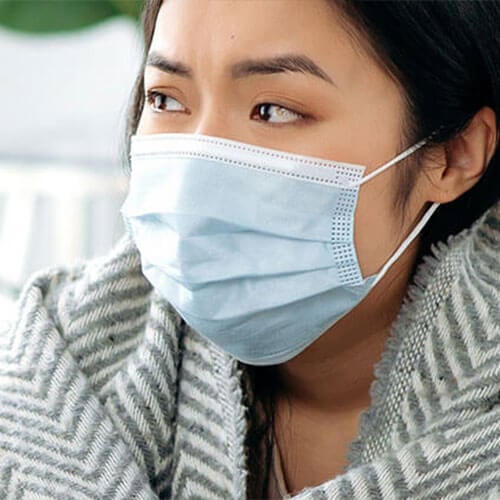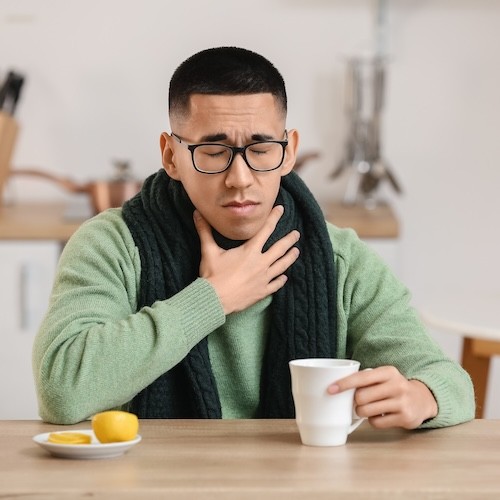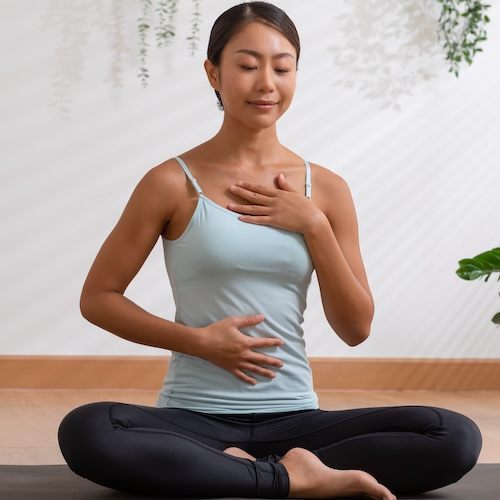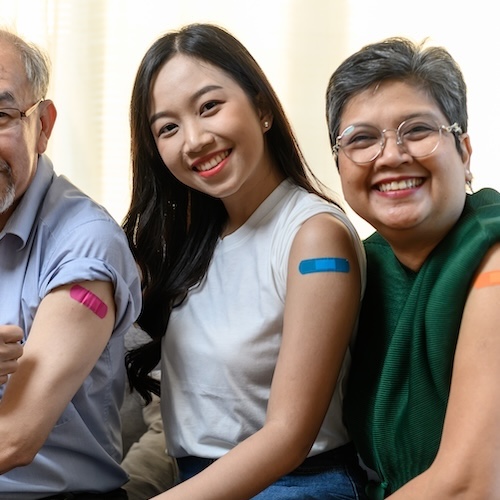If you or someone in your home recently tested positive for Covid-19 infection, have no symptoms or mild symptoms and is not a high risk for severe disease, home care can usually be safely done. Here’s a quick reference to home care for people with Covid-19 infection.
Have everyone at home tested to determine the severity of the situation.
Once someone tests positive for COVID-19 at home, any person they have interacted with can be considered a close contact. Ideally, these people need to be tested for Covid-19. There are tests such as RT-PCR or antigen test available, but ensure that you have contacted your healthcare provider who can guide you on the most appropriate test/s your household members need.
If there are more than one positive case in your home, you can then plan enhanced isolation protocols, schedule mealtimes and monitor symptoms of the affected people.
Monitor body temperature and oxygen levels.
Do provide a digital thermometer and a pulse oximeter, as well as easy-to-understand instructions on how to use them. It’s vital to monitor body temperatures as fever is a common COVID-19 symptom, and is a sign your system is working to fight the infection.
It’s also critical to observe the body’s oxygen levels with a pulse oximeter. COVID-19 may affect the lungs and lead to extremely low oxygen levels and/or significant damage.
Encourage them to keep a log of their readings throughout their quarantine. You can also ask them to constantly update you whenever they take readings. Lastly, remind them to thoroughly disinfect the apparatus after each use.
Call your healthcare provider immediately if you see any of these danger signs:
- Difficulty of breathing
- Chest pain
- Confusion
- Or worsening of symptoms
As much as possible, avoid face-to-face interaction with the sick person.
Instead, let them communicate with you via text messages, cellphone calls, or chats on messaging applications. If you need to hand something over, place a table, chair, or flat surface outside the room. This will serve as a “spot” for food, essentials like masks, tissues, hygiene products, and medicines you’ll be providing.
Protect the health of the person caring for the person with Covid-19 infection.
The transmission of Covid-19 happens when an infected person is in close or direct contact with another person. If possible there should only be one caregiver and he/she should be in tip top condition. Vaccination can offer protection against Covid-19 and so it is best that the caregiver is vaccinated. It is important to wash hands before and after any interaction with a sick person. Both the caregiver and the sick should wear a well-fitted medical mask whenever they share a space with each other. Ensure that the room/isolation area is well ventilated – open windows to bring fresh air. Stay at least 1 meter away from the sick person.
Eat healthy and nutrient-rich food.
What a person eats plays a big role in their recovery. Load up on fruits and vegetables that contain zinc and vitamins A, C, D, and E. These nutrients may help alleviate symptoms linked to this virus. At the same time, drink lots of water so the body is adequately hydrated.
Isolate based on quarantine guidelines.
Per guidelines of the Philippines’ Department of Health (DOH), someone with COVID-19 must be isolated. They need a separate bedroom and bathroom that only they will use for the duration of their quarantine. On top of this, they must also have their own set of utensils, plates, mugs, and glasses. These must be handled separately from other items in the house.
As for the duration of quarantine, it would depend on the severity of symptoms and vaccination status. Take note of updated DOH protocols as of January 2022.
Keep things clean.
Surfaces and other household items touched and used by the person with Covid-19 should be cleaned and disinfected at least once a day. Remember to dispose of trash properly.
Report cases to government authorities, workplaces, and/or schools.
Report positive cases at once to your barangay, village, or local government unit (LGU) authorities. Guidelines on reporting COVID-19 cases usually depend on the LGU where you’re currently residing. Do a quick search on the standard operating procedures for your location.
If the patient goes to work or school, inform the necessary authorities too. Honest reporting of COVID-19 cases may help officials monitor the situation at home better. In some cases, they may also provide you with support in the form of emotional and mental guidance, or even food, medicine, and other essentials.
Managing COVID-19 case at home can be daunting at first, but with constant monitoring and strict adherence to health protocols, your household can overcome this obstacle. It is important to reduce the spread of infection to other family members. Have presence of mind and know when to call your friendly healthcare provider.
References:
https://doh.gov.ph/node/33565 https://www.philstar.com/headlines/2022/01/13/2153651/new-doh-guidelines-shorten-quarantine-isolation-fully-vaccinated
https://www.eatingwell.com/article/7775573/what-should-you-eat-if-you-come-down-with-coronavirus/
https://www.mountelizabeth.com.sg/healthplus/article/oximeter https://www.medtecheurope.org/wp-content/uploads/2020/05/2020_MTE_PPE-explanatory-paper_May2020.pdf
https://cleanstreets.westminster.gov.uk/personal-protective-equipment-ppe-waste-disposal/








